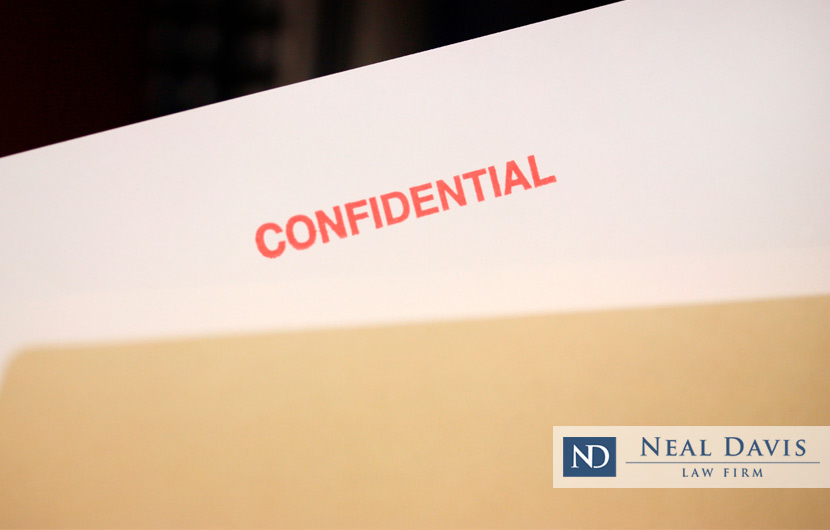Originally published by Neal Davis.

If you or a loved one has a criminal history, you should be aware of the 7-year rule in Texas as it applies to background checks.
To make background checks, an employer can investigate job prospects on its own, but that is rare. Most use an outside business known as a credit reporting agency to run background checks of prospective employees.
These background checks can include such information as verifying your identity and previous employment history, as well as confirming your education and learning your credit history, driver’s history and criminal record.
Background checks in Texas are common
More and more employers are running Texas background checks on potential employees.
In fact, studies show that more than 90 percent of employers in America run background checks on job applicants.
Why do they do this?
For one thing, employers may be liable in a civil lawsuit if an employee they hired is responsible for injuring someone or damaging property. That would be true especially if the employer failed to run a background check on the worker.
A background check can also determine if a prospect was honest on his or her job application.
Also, given a choice between a person with a criminal history and a person with no criminal history, employers naturally tend to choose the applicant with the clean record.
On the other hand, individuals who have paid the price for criminal behavior deserve a chance to start over. If no one wants to hire them, that may make it more likely that the person will revert to criminal activities.
The 7-year rule on background checks is meant to provide a balance between the needs of employers and the needs of prospective employees, notably those with criminal records.
7-year rule applies only to credit agencies
If an employer runs its own background check, it can explore your history as far back as it wants. But the credit reporting agencies which most employers use are governed by the 7-year rule limiting background checks to the previous 7 years.
Also known as the 7-year rule, it’s provided by the Fair Credit Reporting Act, or FCRA. That is a federal law which governs background checks and how they can be applied to hiring decisions.
The FCRA holds that all arrest records, civil lawsuits, civil judgments and paid tax liens can’t be reported in a background investigation or other consumer report after 7 years have passed.
Texas exceptions to the 7-year rule
Various states have their own rules about such things, including Texas, which makes exceptions to the 7-year rule.
In Texas, if the salary of the job opening is $75,000 or more yearly, then background checks are allowed on the job applicant back to age 18 — which may be a longer span than 7 years.
Background checks in Texas can also extend for any number of years to your 18th birthday if you apply for a job at an insurance company.
Also, for jobs involving in-home services such as being a plumber or an electrician, or jobs for residential delivery such as a UPS or FedEx driver, Texas employers must conduct checks that include 10 years of misdemeanor history and 20 years of felony history.
Also, state and local government agencies in Texas to which you apply can run background checks back to your 18th birthday, even if that was longer than 7 years ago.
Exceptions in job applicants’ favor
Some exceptions to the 7-year rule are in the job applicants’ favor.
For instance, if you accepted deferred adjudication or probation for an alleged crime and the charge was dismissed without any admission of guilt, that would not show up on your criminal record, even if it was within 7 years.
This matters when you fill out a job application. If the application asks you about criminal convictions, guilty pleas or pleas of no contest, then you’d have to admit to those. But if you were arrested and were not convicted, and if you did not plead guilty or no contest, then your arrest isn’t considered proof of criminal conduct for employment purposes.
In addition, keep in mind that the criminal records of minors (those under 18) are sealed in Texas. So if you committed a crime at age 17 and applied for a job at age 22, the 7-year rule wouldn’t allow an employer to learn of your criminal record prior to age 18.
Also, members of some ethnic or racial groups who feel that an employer discriminated against them in a background check can file a complaint with the Equal Employment Opportunity Commission (EEOC).
Criminal records can be expunged or removed
Beyond all this, if you’re concerned about a background check revealing your criminal history, you can consult a skilled criminal defense lawyer for help in seeking an expungement or an order of non-disclosure. This could prevent your criminal history from being revealed.
To learn how to get a charge expunged or removed from your record, individuals in Houston, Harris County, Fort Bend County or Montgomery County should contact the Neal Davis Law Firm. Your case review is free, so let us help.
The post What is the 7-Year Rule in Texas? appeared first on Neal Davis Blog.
Curated by Texas Bar Today. Follow us on Twitter @texasbartoday.
from Texas Bar Today https://ift.tt/31HH9xx
via Abogado Aly Website
No comments:
Post a Comment